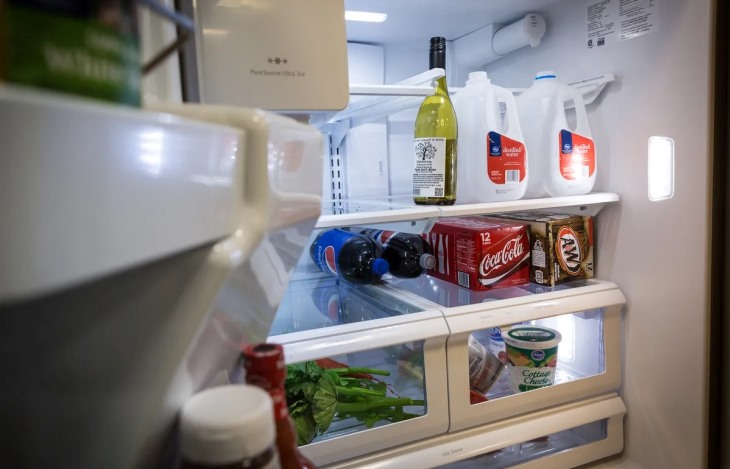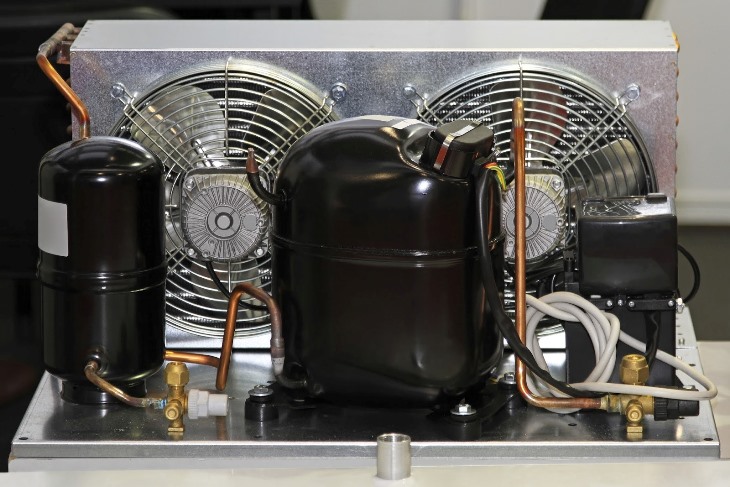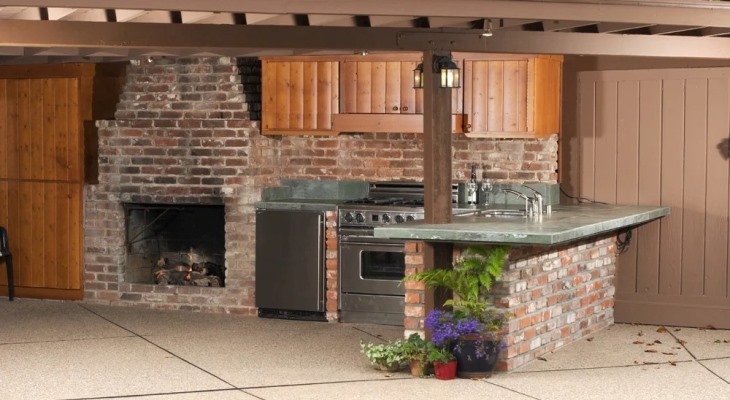Whether you want to upgrade your patio area with an outdoor bar or simply need to store a fridge outside for the winter, you can wonder whether or not it’s safe to leave it out that long while it’s unplugged.
I won’t recommend leaving your fridge outside in the winter time, even if it is unplugged. While you can place it outside temporarily with a proper cover, consistent freezing temperatures can damage key components of the fridge and prevent it from working properly again.
Table of Contents
Key Fridge Components

In order to understand what parts could be damaged in the winter, it’s important to understand the key components of your fridge and how they all work together.
Refrigerant
Refrigerant starts off as a liquid and then gets converted to a gas and is continuously cycled through your fridge. This is what keeps everything cool inside.
Evaporator
Just like it sounds, this component is what turns the liquid refrigerant into a gas. As refrigerant is turned into a gas, it becomes colder.
Compressor
The compressor increases the pressure of the vapor and pushes it through the rest of the system and also adds heat, which is important for the condenser.
Condenser
A condenser in a fridge is what turns the refrigerant vapor back into a liquid. And then the entire cycle begins again.
Potential Issues in Freezing Temperatures
Now that you know the central mechanisms involved in the cooling process of your fridge, you can start to understand potential problems that might arise if you leave it outside during the winter months, especially with no protective measures.
Damage to the Compressor

This is the most common component to get damaged in a fridge that has been exposed to the elements. Compressors do not like extreme cold (freezing or below) for long periods of time.
There is likely condensate inside your compressor that, when exposed to very cold temperatures, will freeze and cause damage to the compressor and its adjacent components.
There is also oil, which gets thicker as it gets colder. If the oil inside the compressor is too thick, it won’t circulate and lubricate properly.
When a compressor gives out, it usually happens shortly after you plug your fridge back in again. It may run fine for a few days before it stops working altogether.
Reduced Cooling Ability
Damage to multiple components from freezing weather will reduce their overall output. When this happens, your fridge stops getting cold enough to protect your food and may stop cooling at all.
Frozen Lines
Even though there are important electrical components to consider inside a fridge, water lines that run to an ice maker can also be damaged.
When water freezes, it expands. So if there is any water left inside these lines and it is stored outside during freezing winter temperatures, you run the risk of the water inside the lines expanding and bursting them.
Things to Consider
Being a larger piece of furniture, sometimes it is not always feasible to store a fridge in your house if it’s not in use. Also, most cities do not allow these types of appliances to be left on the curb for regular trash pickup.
So if you’ve found yourself in a position where you really have no choice but to store it outside, there are a few things you can take into consideration before storing it.
Newer vs. Older Fridge
Surprisingly, older fridges hold up better when exposed to the elements than newer fridges do. This is likely due to the increased amount of electrical parts inside newer models, and especially true for smart fridges.
The older your fridge is, the better chance you have of it working properly once plugged in again.
Weatherproof Covers
A cover designed for large appliances is a worthy investment if you plan on storing your fridge outside over winter. This will give your fridge an extra layer of protection.
These can be purchased online and in some instances, directly from the manufacturer of the fridge.
Garage Storage

If at all possible, store your unused fridge in your garage, or even your basement, over winter. The residual heat from your house should be enough to keep all of the components from dropping below freezing.
Additionally, you can periodically place a space heater in the area for the particularly cold days.
Final Thoughts
Properly storing appliances when not in use is crucial to making sure they run properly once they are plugged in again.
So when debating on if you can leave your fridge outside in the winter unplugged, consider the potential damage you may have to deal with once it is plugged back in.
If you find yourself having little options for storing your fridge, take the necessary precautions to protect it with a cover or consider storing it in the garage. But when in doubt, don’t risk it.

